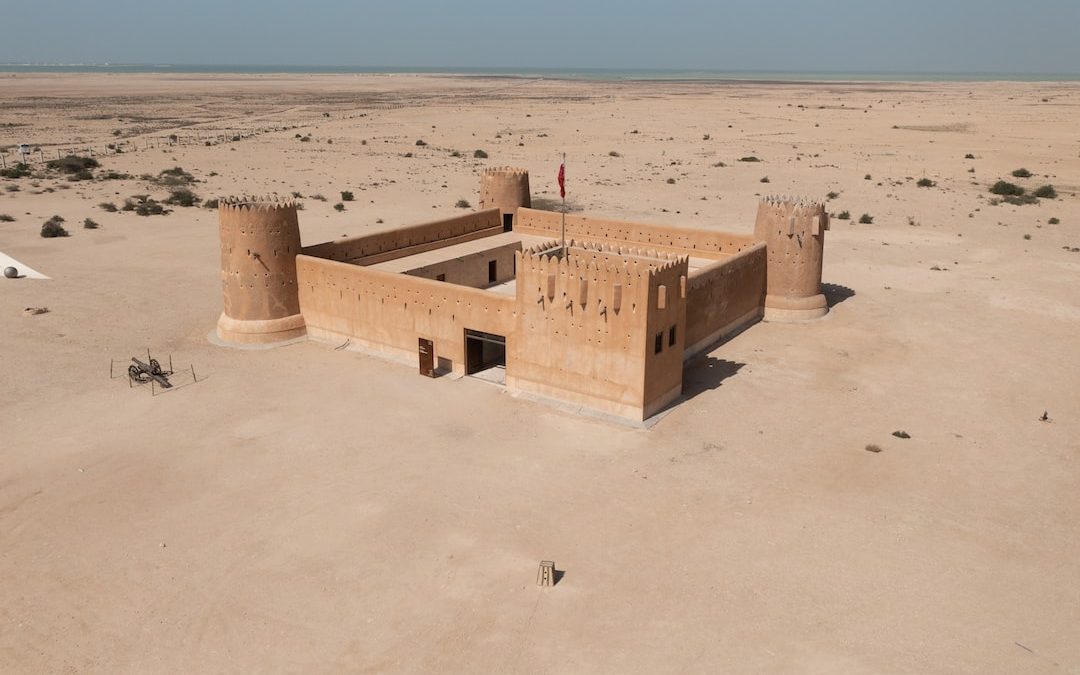Table of Contents
Uncovering Qatar’s History: Exploring the Rich Heritage of Qatar
Introduction
Qatar is a small, oil-rich country located in the Middle East, on the Arabian Peninsula. With a population of just over 2 million people, Qatar is known for its vast wealth and resources, its modern architecture, and its traditional culture. But beneath the glitz and glamour lies a long and fascinating history that stretches back to ancient times. From its ancient trading routes to its vibrant traditional culture, Qatar has a rich heritage that is worth exploring. In this blog post, we will take a look at some of the most interesting facts about Qatar’s history, and explore its rich cultural heritage.
Ancient Trading Routes
Qatar has been an important trading post since ancient times. As far back as the 3rd century BC, Qatar was part of a commercial network that connected the Arabian Peninsula with India, the Persian Gulf, and other parts of the world. This network was known as the “Frankincense Road”, where merchants would travel to trade goods including spices, incense, and other commodities. This important trading route was vital to the development of Qatar’s economy and it has remained an important trading hub throughout its history.
Qatar’s Pearl Industry
Qatar is also famous for its pearl industry. Pearl fishing was one of the most important industries in Qatar for centuries, and it was the main source of income for many of the country’s inhabitants. The pearl industry was so important to Qatar’s economy that it was even featured on the country’s first currency, the Qatari riyal. The industry has since declined due to the introduction of cultured pearls, but it remains an important part of Qatar’s history and heritage.
The Rise of Qatar’s Oil Industry
Qatar’s oil industry has been a major source of wealth and power since the 1950s. The discovery of oil in the country in 1939 sparked a period of rapid growth and development, transforming Qatar from a small fishing village to an oil-rich nation. Qatar soon became one of the most important oil producers in the region, and its oil wealth has helped to shape the country’s modern economy and infrastructure.
Qatar’s Traditional Culture
Qatar is a country with a vibrant traditional culture that has been passed down from generation to generation. Traditional Qataris are known for their hospitality and generosity, and visitors are welcomed with open arms. The country is also known for its traditional cuisine, which is heavily influenced by Middle Eastern and Indian flavors.
Qatari Cuisine
Qatari cuisine is a unique blend of Middle Eastern and Indian flavors. Some of the most popular dishes include kabsa (rice with meat and spices), machboos (spiced rice with meat), and shawarma (meat sandwiches). Desserts such as baklava and qatayef (stuffed pancakes) are also popular.
Traditional Clothing
Qatar is also known for its traditional clothing, which is still worn by many Qataris today. Men typically wear a thobe (a long, white robe) and a gutra (a white headdress). Women typically wear a black abaya (a long, loose-fitting robe) and a hijab (a headscarf).
Qatari Art and Architecture
Qatar is home to a rich and vibrant art and architectural scene. Traditional Qatari architecture is characterized by its simplicity and functionality. The most famous example of traditional Qatari architecture is the Al Zubarah Fort, which was built in 1938 and is now a UNESCO World Heritage Site. Qatar also has a thriving modern art scene, with a number of galleries and museums showcasing the work of local and international artists.
Qatar’s Sporting Heritage
Qatar is also known for its sporting heritage. The country is home to a number of popular sports, including football, cricket, and tennis. Qatar also hosted the 2022 FIFA World Cup, which is set to be the biggest sporting event in the country’s history.
Qatar’s Rich Marine Life
Qatar is also home to a rich and diverse marine life, which can be found in its warm, shallow waters. The country is home to a variety of coral reefs, mangroves, and seagrass beds, which provide a habitat for a wide range of marine life, including dolphins, turtles, and a variety of fish species.
Qatar’s Wildlife
Qatar is also home to a wide variety of wildlife, including desert foxes, gazelles, and a variety of birds. Qatar is also home to the endangered Arabian oryx, which is a species of antelope found only in the Arabian Peninsula.
Conclusion
Qatar is a small, oil-rich country with a long and fascinating history. From its ancient trading routes to its vibrant traditional culture, Qatar has a rich heritage that is worth exploring. This blog post has explored some of the most interesting facts about Qatar’s history, and has provided an insight into its rich cultural heritage. Whether you are interested in exploring Qatar’s ancient trading routes or its vibrant traditional culture, there is something for everyone in this small, oil-rich country.
Summary
This blog post has explored the rich history of Qatar, a small, oil-rich country located in the Middle East. We looked at some of the most interesting facts about Qatar’s history, including its ancient trading routes, its pearl industry, and its traditional culture. We also explored Qatar’s modern art scene, its sporting heritage, its marine life, and its wildlife. Whether you are interested in exploring Qatar’s ancient trading routes or its vibrant traditional culture, there is something for everyone in this small, oil-rich country.












